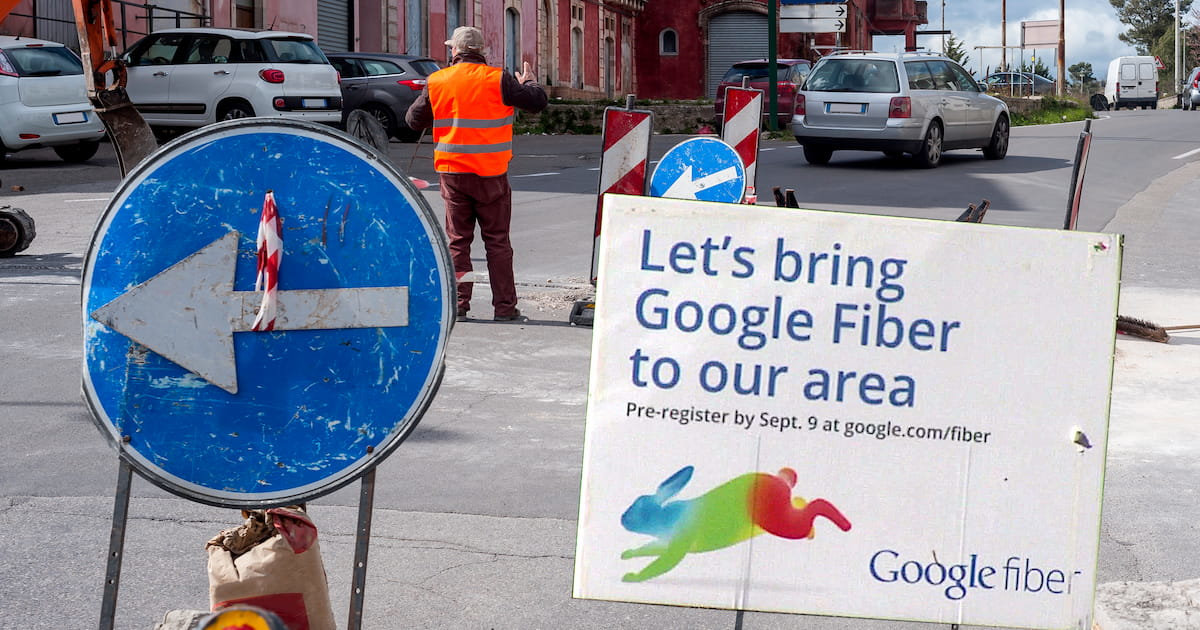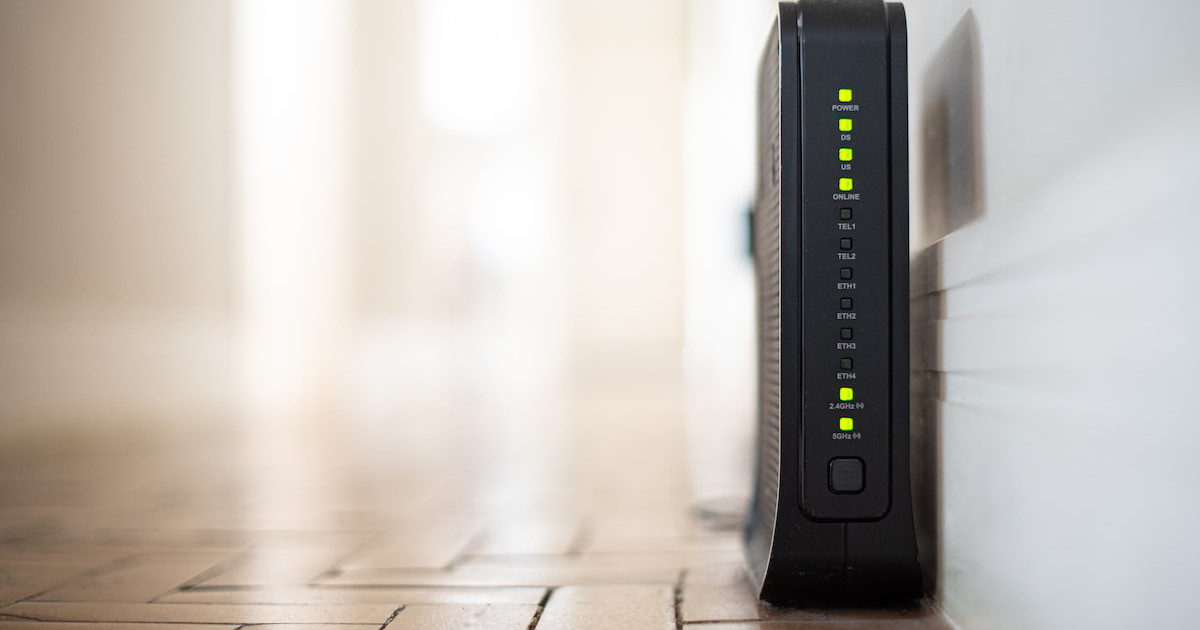People Love 5G Home Internet. Is It the Best Internet for You?
Jun 12, 2024 | Share
Technology
5G home internet is cheap and relatively fast—and it turns out that customers absolutely love it. That was one of the big takeaways from our most recent customer satisfaction survey, which dropped in September 2023.
In the survey, 5G fixed wireless users gave the service top marks for speed, customer service, and overall satisfaction. T-Mobile and Verizon, the most prominent 5G home internet providers, beat out major competitors like Google Fiber and AT&T, taking the top two spots for reliability, customer service, and overall satisfaction. A record-setting 96% of T-Mobile users reported being especially happy with the service’s price.
5G home internet (also sometimes called 5G broadband or 5G fixed wireless) is still a relatively new and emerging service, but these positive reviews suggest it’s here to stay. Want to know if you’re 5G’s target customer? Read on to find out.
Want fast internet?
Run a search with your zip code below to see if you can get 5G home internet in your area.
5G home internet pros and cons
 Pros:
Pros:
- Low prices
- Solid download speed
- Lots of promotions
 Cons:
Cons:
- Inconsistent connectivity
- Occasional technical issues
- Limited plan options
Where can you get 5G home internet?
Verizon and T-Mobile are the main 5G home internet providers, but you can also get the service from AT&T and Starry Internet for roughly the same price. No matter what provider you get, expect to pay around $50 a month for a standard plan.
Since rolling out in 2019 and 2020, 5G coverage has expanded rapidly. T-Mobile now has the biggest 5G network, according to a recent report from Opensignal. AT&T and Verizon have more limited 5G coverage, but both have rolled out versions of 5G home internet that are now available nationwide. (In rural areas, these providers also offer home internet over 4G LTE networks.)
The best 5G home internet plans
| Provider | Download speed | Price | View on provider’s site |
|---|---|---|---|
| T-Mobile 5G Home Internet Plus | 72–245Mbps | $70.00/mo.† | View Plans |
| Verizon 5G Home Internet | Up to 300Mbps | $60.00/mo.* ($35.00/mo. w/ Verizon Unlimited Plus) | |
| T-Mobile 5G Home Internet Unlimited | 72–245Mbps | $50.00/mo.† ($40.00/mo. w/ Go5G Plus or Magenta MAX) | View Plans |
| AT&T Internet Air | 75–225Mbps | $55.00/mo. ($35.00/mo. w/ qualifying wireless plan)§ | View Plans |
| Starry 300 | Up to 300Mbps | $50.00/mo.‡ | View Plans |
Read disclaimers.
Reasons to get 5G home internet
The biggest selling points for 5G home internet are affordability and flexibility. It’s best for college students, small households, and folks on a budget.
5G home internet is cheap
If 5G internet is anything, it’s cheap. On average, most people spend $75 a month on internet. Services like T-Mobile Home Internet and Verizon 5G Home Internet can get you a home Wi-Fi package for much less. You can bring the price down even more—to as low as $30 a month—when you bundle your internet service with a mobile phone plan.
You can find lots of promotions and deals to make the price a little bit better. T-Mobile regularly offers perks like a $50 prepaid VISA card, a one-year Instacart+ membership, and a $100 grocery credit for new customers. Verizon hooks it up with a handful of discounts and streaming subscriptions that rotate every month.
Pro tip: Get a deal on Wi-Fi!
Take a look at our Best Internet Deals guide for the latest on promos from T-Mobile and Verizon.
5G home internet doesn’t have extra fees
Your internet plan’s monthly price usually isn’t the only charge on your bill. Often, your bill also gets stuffed with fees for installation and equipment. You may see a price hike on your plan after 12 months of service. You could also be on the hook for early termination fees or overage charges if you end your contract early or exceed your monthly data limit.
5G home internet does away with all that. With a 5G home broadband plan, you pay the monthly fee for internet—and that’s it. You can end up saving a lot of money every year just from these delightful benefits:
- No fee for installation
- No fee for a gateway
- No annual contract
- No data caps
5G gets the job done (even though it’s not super fast)
A basic 5G home internet plan from T-Mobile, Verizon, or AT&T gets you speeds in the range of 40Mbps to 300Mbps. That’s not ideal for a big household of social media influencers and livestreamers. But it’s plenty of bandwidth for two to four people who regularly stream movies, make video calls, and work from home.
Some internet users prefer 500Mbps or even gigabit plans to make sure they have all the speed they could ever need. But in general, a download speed of 100Mbps is just above average for internet users—and 5G hits well within that target.
Pro tip: See how much internet speed you need
Not sure how fast you want your internet to be? Use our “How Much Internet Speed Do I Need?” tool to find out.
Reasons NOT to get 5G home internet
While 5G home internet service is cost effective, it’s also an emerging technology with some limitations. It can be spotty under certain circumstances, and its capabilities don’t compare to ultrafast fiber internet.
5G home internet isn’t necessarily consistent
5G home internet works over a wireless network—signals travel through the air rather than in cables underground like you get with fiber and cable internet. That makes 5G slightly less stable than a wired connection, and speeds tend to fluctuate more often than on fixed broadband internet connections.
For many people, inconsistent speeds aren’t a big deal. But it can be a pain if you live in an area with weak cell service, where your speeds may fall out on occasion. You also might not want to risk having an unsteady connection if your work demands a foolproof internet connection—for example, if you frequently upload and download large files from cloud servers.
5G home internet isn’t a deluxe option
You get a straightforward deal with 5G home internet—T-Mobile has a single 5G home internet plan, while Verizon 5G Home Internet has two plan options. That’s great if you want to keep things simple, but it also means you’re limited with the speeds and plan options you can get.
These days, several fiber internet providers offer plans with speeds up to 5,000Mbps. Cable internet providers offer upper-tier plans that go anywhere from 500Mbps to 1,200Mbps. Those plans cost more, but it may be worth paying more to get better speeds and a more consistent connection.
5G home internet isn’t as good as fiber internet
Although 5G home internet has great reviews—especially in our annual customer satisfaction survey—it still can’t top a fiber internet connection. Fiber remains the fastest, most reliable internet you can get. More providers are offering multi-gig internet speeds, while all fiber providers give you symmetrical uploads and downloads to vastly improve the quality of video calls, livestreams, and other bandwidth-heavy uploading tasks.
Fiber isn’t widely available across the country, but if you can get in your area, it’s well worth getting. That said, 5G home internet is a great option too if it meets your needs. Run a search with your zip code below to see the internet options available in your area.
5G home internet FAQ
Is 5G home internet legit?
Can I use 4G LTE for home internet?
Disclaimers
Best 5G home internet plans (return to top)
*w/ Auto Pay. Available in select areas.
†w/ Auto Pay. Regulatory fees included in monthly price for qualified accounts. See full terms. Delivered via 5G cellular network; speeds vary due to factors affecting cellular networks, including data prioritization.
§AutoPay and paperless billing required. Monthly State Cost Recovery Charge in TX, OH, NV applies. . Service subj. to Internet Terms of Service at att.com/internet-terms. Offers may be modified, or discontinued, at any time without notice. Other conditions may apply to all offers.
‡Available in select areas only. Price per month with Auto Pay & without select 5G mobile plans. Fios plan prices include taxes & fees.
Author - Peter Holslin
Peter Holslin has more than a decade of experience working as a writer and freelance journalist. He graduated with a BA in liberal arts and journalism from New York City’s The New School University in 2008 and went on to contribute to publications like Rolling Stone, VICE, BuzzFeed, and countless others. At HighSpeedInternet.com, he focuses on covering 5G, nerding out about frequency bands and virtual RAN, and producing reviews on emerging services like 5G home internet. He also writes about internet providers and packages, hotspots, VPNs, and Wi-Fi troubleshooting.






